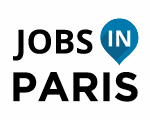International students have rights to work in France if they have a student residency permit (carte de séjour d'étudiant) and are enrolled in a recognized institution (this includes practically all universities, most business schools and other higher education institutions). Many language schools are also recognized, but there are supplementary requirements, such as a minimum of 12 hours of courses per week.
An international student cannot work more than 964 hours/year. During term-time, part-time employment (i.e. maximum of 19.5 hours/week) is permitted. During holidays, you can work full-time.
All non EU/EEA students need an APT (Autorisation Provisoire de Travail), which authorizes temporary employment. You should apply personally at a DDTEFP ( Direction Départementale du Travail, de l'Emploi et de la Formation Professionnelle) office.
You will need the following documents (original and a photocopy):
- passport with visa and residency permit
- student card for the current academic year
- attestation of the affiliation of your academic institution to the French social security system
- working contract, which should mention: nature of contract, qualification, renumeration, start and finish dates, work place and working hours
- self-addressed stamped enveloped
Changing student status
If you are student wishing to take up full-time work in France at the end of your studies, you need to change your status. This is possible and you have good chances if you successfully finish your studies and have a qualification that is in demand (such as in technology).
If you find a job that offers a salary at least 1.5 times more than the minimum wage, you can get a work permit from the DDTEFP. You can then contact your employer and local prefecture so that your status can be changed from student to employee and you can work full-time.
After graduating, students can stay in France for at least a year to find work and apply for a residence permit if they succeed.
Special case: student internships
A student intership (stage d'études) is not classified as employment. It doesn't require a permit and you retain student status. An agreement (convention de stage) is signed by you, the company and your academic institution. It defines the type of work, training and conditions (hours, place of work, allowances).
Since 2015, every internship of a duration of two months or longer has to be remunerated. The minimum wage for those internships is €508,- (2015). The placement company can also give some specific allowances such as for transport, accommodation and/or meals. The value of a placement is to get professional experience and start building on a professional network. It is not uncommon for a successful internship to lead to full-time job offer.
Most universities provide information about available placements, so inform your university or placement office. There are also specialized agencies and websites.
Part-time jobs for students
Babysitting is a popular source of pocket money for students. Most jobs are obtained by word-of-mouth, so ask around if you are looking for work. There are agencies that act as intermediaries between parents and babysitters. Payment is usually €5-6/hour. If the house is not easily accessible, you may also think about asking for your transport to be paid for.
Other part-time jobs include: foreign language teaching, translations, telemarketing, telesurveys, software or videogame testing, etc.


